‘Guys don’t talk about this stuff.’ After a tragedy, can an NC tennis tourney change that?
- Oops!Something went wrong.Please try again later.
Chuck Reiney seemed to have everything a man could want.
He had been married to his wife, Megan, for 25 years. They had raised three thriving boys, who were all now young men in their early 20s. He had a career in Charlotte that melded banking and IT and supplied the family with plenty of money. He had a passion for tennis — the sport he played in college at Furman — that only increased as he grew older.
After moving to Charlotte in 2005, Reiney made so many friends at Charlotte’s Olde Providence Racquet Club that he became the club’s president for a year and helped guide it through the COVID era.
He liked to grill steaks on Sunday afternoons and visit old major league ballparks with his family in the summer. He loved dogs. His health was good. He was 53 years old and could still often beat high-level amateur tennis players who were in their 20s.
But on Feb. 9, 2023, Reiney died by suicide.
That Thursday morning, Reiney texted a friend at 8:15 a.m. that he wouldn’t be able to play tennis with him as scheduled on Saturday. “Can’t make it,” he wrote.
Reiney didn’t go to work. Instead, he left his phone and Apple watch at home and drove from south Charlotte to a spot close to the NoDa area uptown. He parked his 2011 Infiniti sedan on the side of the road, got out and started walking.
At 1:15 p.m., Reiney stepped in front of a train.
He left no suicide note.
What he did leave was an endless series of questions from his friends and family, who for the past 15 months have wondered what warning signs they must have missed and have struggled with how much they didn’t understand about a man they thought they had known so well.
After the initial shock, they have put much of their energy into organizing a charity tennis tournament and related events that will be held Thursday through Sunday at Olde Providence.
Called “Ace the Stigma,” the tournament’s goal is to raise money for several Charlotte charities and to get people — particularly men — talking more openly about mental health and wellness.
Because with Reiney, the people closest to him simply didn’t know.
“Guys don’t talk about this stuff,” said Ashley Shaw, a man who was one of Reiney’s closest friends. “I just had no idea.”
“We were blindsided — all of us,” said Mike Reiney, Chuck’s older brother.
“None of us saw this coming,” said Tim Kullick, a friend who was one of Reiney’s frequent hitting partners on the courts. “It really has rocked us all.”
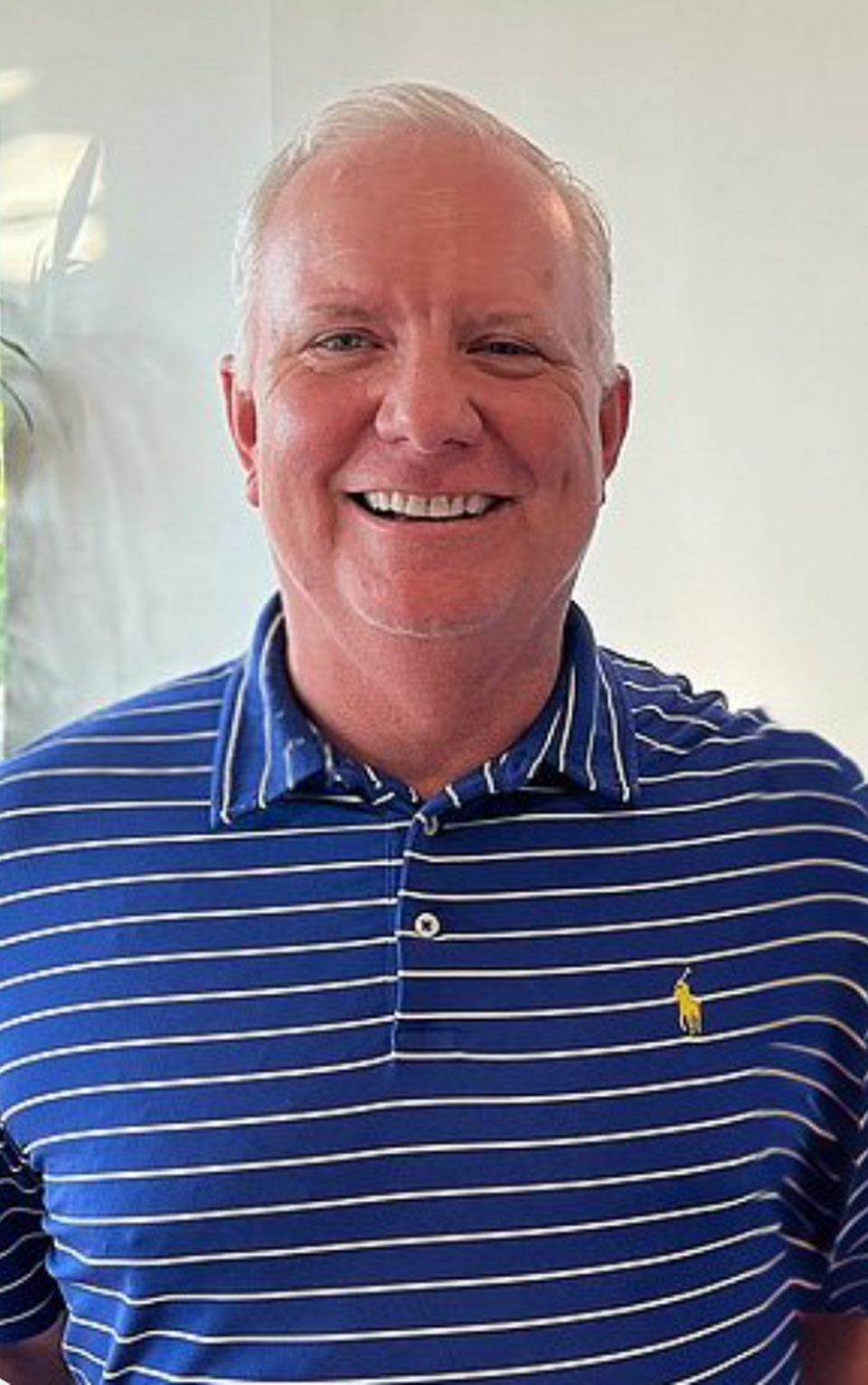
Reiney’s death by train was violent enough that it briefly made the local news everywhere in Charlotte, although he wasn’t publicly identified. None of the 80 passengers was hurt on the Amtrak train traveling from Raleigh to Charlotte that hit Reiney. Without a name to attach to the death or many other details, the local media quickly lost interest and moved on.
Reiney’s family and friends, though, never forgot. On that Thursday, a hole opened in their lives that has never quite been filled. They hope this weekend’s tournament helps.
A memorial service on Court 1
They held Reiney’s memorial service on Court 1 at Olde Providence Racquet Club on Feb. 14, 2023, five days after his death. Organizers set out chairs atop the same clay court where Reiney had put away so many winners with his crisp left-handed volleys. On Valentine’s Day, 500 people showed up to pay tribute.
“This was a sacred space for Chuck,” minister Matt Williams said, “and so it is a perfect place to celebrate his life.”
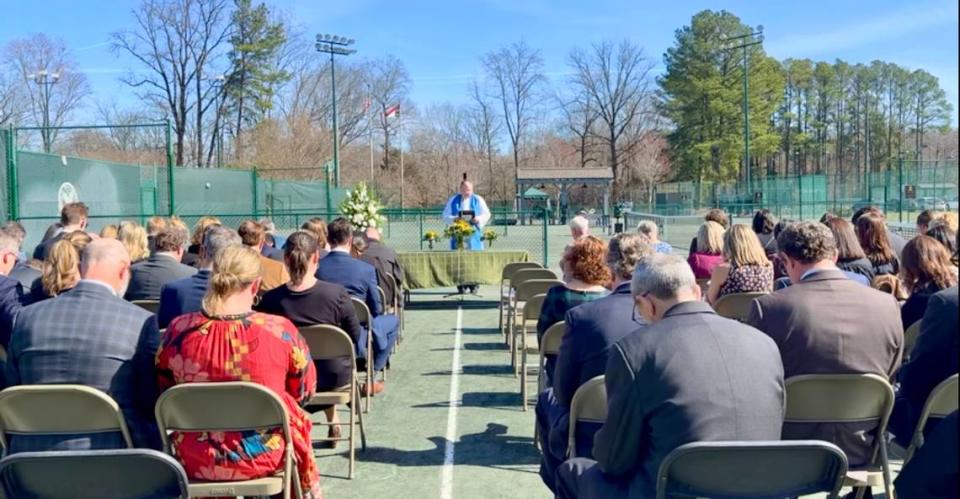
Reiney’s immediate family gathered in Charlotte after his death. Everyone wondered two things: “Why?” and “What do we do now?”
Said Mike Reiney: “Within 24 hours after Chuck died, 20 Reineys showed up at my sister-in-law’s house in Charlotte. We stayed there for a week. In some ways, we had a great time remembering his life, but reminiscing was also like walking through quicksand. We decided as a family that, if we can do anything to help another family not walk through that quicksand — not have to go through what we were going through — it would be worthwhile.”
Chuck Reiney (pronounced RAIN-ey) grew up in Jacksonville, Fla., the third of four siblings. His parents built a tennis court in family’s backyard when he was six years old and his older brother Mike was eight.
“That court changed our life,” Mike Reiney said.
Mike and Chuck shared a room, with black-and-gold shag carpet and posters of tennis player John McEnroe and actor Nastassja Kinski. The Reineys were an athletic family. Of the four siblings, the three boys all played tennis collegiately on scholarship, and the lone sister became a college swimmer.
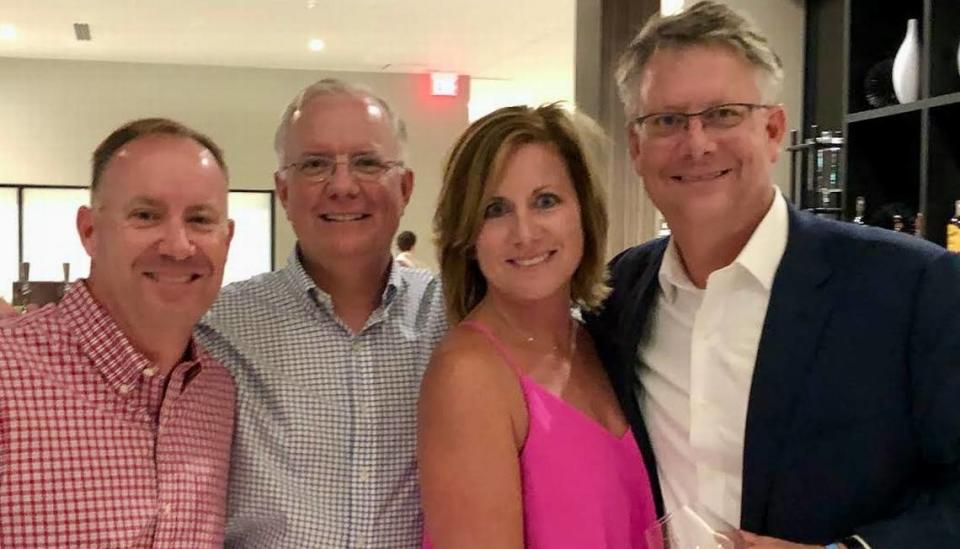
Reiney was a good enough junior tennis player to play at Furman but not good enough to go pro. He would enter the banking world after graduation, focusing mostly on information technology. He and Megan moved to Charlotte in 2005 and never left, with Reiney quickly finding a large community of fellow tennis players at Olde Providence, where he spent many of his non-working hours.
‘How am I losing to this dude?’
Built in 1962 in south Charlotte, Olde Providence is Charlotte’s most prominent tennis club, with 27 clay tennis courts and a four-year wait list to become a member. There are close to 800 families with either tennis or swim memberships. You can occasionally see Andy Roddick hitting there these days, as the former Grand Slam champion has now relocated to Charlotte with his equally famous wife, Brooklyn Decker. Once for a couple of days in 2023, current women’s tennis star Coco Gauff flew in so Roddick could give her some serving lessons.
But most of the players at the club known as “OP” are simply avid amateur tennis players of all levels. The best of them compete in the Pro League, a local tennis league held at OP with captains and an NFL-type draft that is played for bragging rights and a small amount of money.
Even into his 50s, Reiney played doubles in the Pro League and was routinely underestimated by his opponents.
“He was 53, but he maybe looked a little older,” said Jon Goldberg, a Charlotte attorney and a close friend and tennis partner of Reiney’s. “He had thinning hair, glasses and a body that wasn’t exactly Olympic. But I had about a 14-year losing streak against him. He was crafty, and his hands at the net were incredible. There would be these young studs on the other side of the court and after a while they’d be going, ‘How am I losing to this dude?’ But by then, it was too late.”
Like Reiney, Goldberg served one year as the club president. During the eulogy he gave for Reiney, Goldberg laughingly described this volunteer job as “all headaches, no perks.”
But Reiney loved all facets of the club and spent countless hours there. All three of his sons played tennis and graduated from Charlotte high schools before going onto college. Reiney would often end up on the second-floor balcony of the clubhouse with Shaw on Friday afternoons, drinking a beer and watching the tennis action below.
“He was a simple guy, really,” Shaw said. “If you had put a tracker on his car, it would have been Olde Providence, work and home. That’s it.”
The club has now installed a plaque in Reiney’s honor, on the second floor where he used to sit with Shaw to watch tennis. It reads, in part: “Chuck enjoyed sitting here with a cold beverage talking among friends.”
A family left searching
In February 2023, there were apparently only two people who knew even a little bit about Chuck Reiney’s issues. One was his older brother Mike. The other was his wife Megan, who didn’t want to be directly quoted for this story but did answer questions by email and supplied several of the story’s photos.
Mike wonders now if the family’s athletic bent — and the way that male athletes are so often told to “Man Up” after minor injuries or other setbacks — had any influence on a brother who competed all his life. Mike also wonders, in retrospect, if Chuck’s struggles with a job he had recently taken — struggles that Mike had considered a relatively normal part of the business world — had ballooned in his brother’s mind to something bigger than they were.
The two talked by phone regularly — Mike Reiney lives in Huntsville, Ala. But Mike said he didn’t understand the severity of Chuck’s problems, nor did he know whether there was something besides his job that was bothering him. Therapy, while suggested, wasn’t something Chuck could be convinced to habitually pursue.
Reiney was far from alone in his struggle. According to the Centers for Disease Control and Prevention, adults aged 35-64 account for approximately 47% of all suicides in the United States. Suicide is the No. 8 cause of death for that age group.
Overall, the CDC reports that suicide rates increased approximately 36% between 2000–2022 in the United States. Suicide was responsible for 49,476 deaths in 2022, the most recent year in which U.S. statistics are available. That’s about one death every 11 minutes. In 2022, the CDC estimates that 13.2 million American adults seriously thought about suicide, although the vast majority do not act on those thoughts.
Speaking generally of his brother’s life, Mike said that Chuck had often seemed to sail through life with no apparent problems.
“He always had the girls,” Mike said. “He always had fun. He always made straight A’s. He never got in trouble. And in some ways, looking back, I don’t know what kind of adversity he had really faced in his life (until the final months). ... I think he finally got on some medicine. But that was within the last two weeks, so that probably wasn’t enough time.”
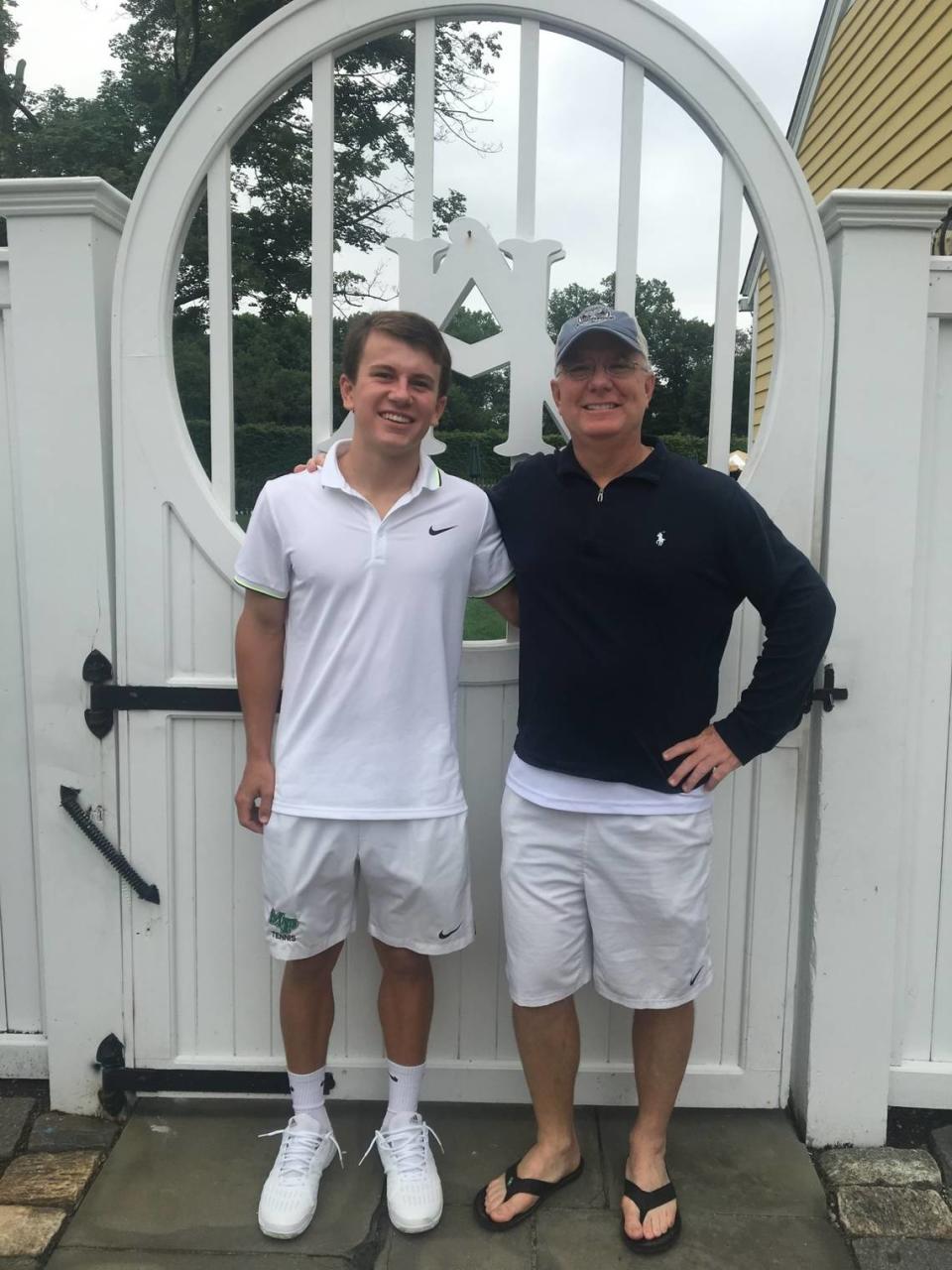
All of his friends and family believe that if Chuck had talked more about his mental issues — and if they had known to ask him more about those issues and to then more strongly suggest various forms of help — that he might be alive today.
As Mike Reiney said when he delivered his eulogy for his brother: “When you say mental health it’s got a negative connotation to it. ... We acknowledge it but we don’t embrace it. ... Every family has problems. Every family has issues. We’re no different than anyone else.”
Kullick, who received the text from Reiney about five hours before Reiney took his life, still ponders those few words and what it took to send them.
“All that was going through his head that day, and he was thoughtful enough to send a text saying that he wasn’t going to make it?” said Kullick, who estimated he had played tennis with Reiney 250 times over the past decade. “I’ve thought about it a million times. But there was nothing unusual about the text — except that I can count on one hand the times in the past decade that he canceled.”
Through Amtrak employees, Mike Reiney said he tried to get hold of the conductor who was driving the train but who had had no chance to avoid Chuck on the tracks.
Amtrak, according to Reiney, wouldn’t allow him to talk to the conductor. He said he had wanted to do so only because he was concerned about the conductor’s mental health, given he had no time to stop.
As for whether his brother stepped onto the tracks on purpose, given that there was no suicide note, Reiney said that video evidence he has seen leaves no doubt that it was purposeful.
Support has been ‘overwhelming’
Reiney’s friends and family have thrown themselves into the weekend’s charity tournament and its affiliated events, determined to help the mental health community in Charlotte. They have already raised more than $100,000, organizers say.
“The support has been overwhelming,” Kullick said. “I think that speaks not only to Chuck’s impact and the closeness of the Charlotte tennis community, but also to how significant an issue that mental health and wellness is.”
And another event is likely coming in the fall, this one also benefiting local charities and featuring an exhibition tennis match with some well-known current or former pro players. There is no shortage of people missing Chuck and wanting to amplify the cause of mental health.
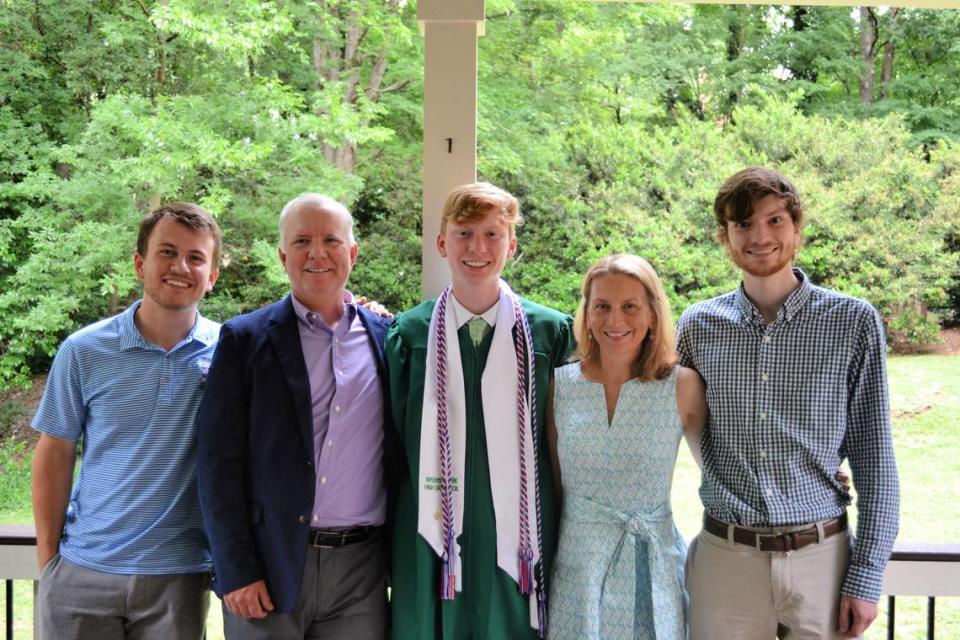
In quiet moments, Chuck’s friends and family wonder what if anything they might have done differently, or if there was something they didn’t know.
“I talked to his financial advisor and his boss at work,” Mike Reiney said. “The family just assumed there had to be something. But there was none of that. He was in good standing with his employer. His financial situation was sound. His kids were getting close to finishing college. He had told me that he could see his future — work for about another 10 years, then retire and play tennis all the time. Maybe even coach a little tennis. So what happened? There are some things I think we’re just never going to know.”
Said Kullick: “Every day I kick myself for not just asking a simple question to spark a conversation with Chuck and how that may have had some impact. ... So I’ve learned a lot throughout this whole process and been very introspective. I think you have to make it a point to reach out to folks that you know, even though they may seem to be in a good spot. It never hurts to start the conversation. Because you never know. You just never know.”
Editor’s note: If you are having thoughts of suicide, you can call or text 988 to reach the 988 Suicide and Crisis Lifeline anytime. It is free, confidential and always available. Or go to SpeakingOfSuicide.com/resources for a list of additional resources.

